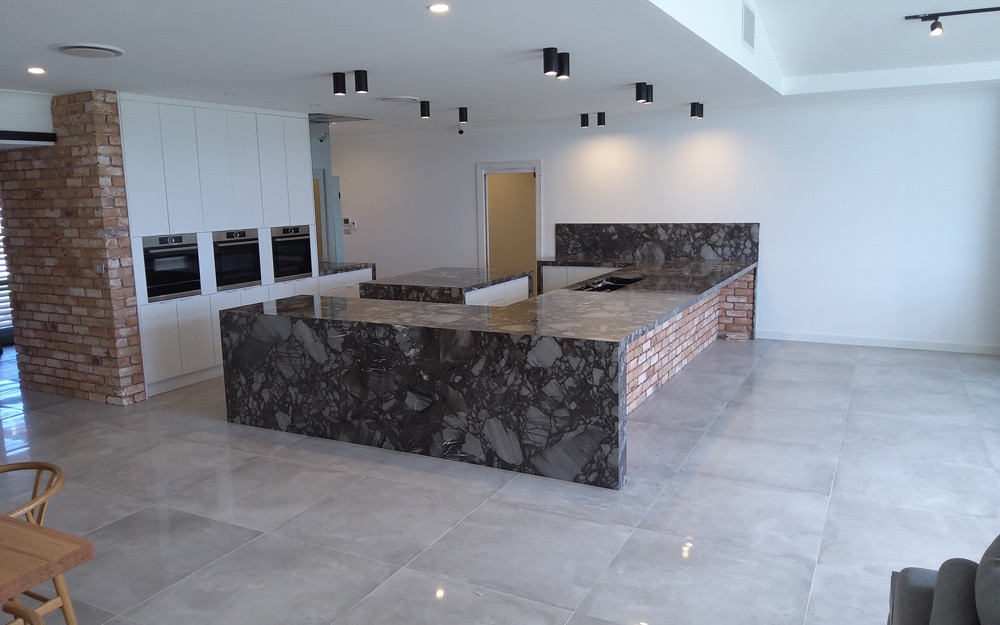Are you in the process of revamping your kitchen and can’t decide between Caesarstone and granite for your benchtop? It can be a challenging task to choose between these two strong contenders, as both bring unique strengths. Let’s explore the details of each option to help you make an informed decision.
Caesarstone's Engineered Strength vs Granite's Natural Hardness
Caesarstone is an engineered stone crafted from a combination of quartz crystals and resin, which makes it incredibly tough and resistant to scratches, chips and stains. This manufacturing process results in a surface that’s hard and non-porous, meaning it’s less likely to harbour bacteria and mould.
Granite, on the other hand, is a natural stone that has been formed over millions of years under the earth’s surface. This process gives granite its unique characteristics, making it highly resistant to scratches and heat. Unlike Caesarstone, granite is porous, which means it can absorb liquids and potentially stain if not sealed correctly.
Choosing Your Style: The Aesthetic Differences
Apart from durability, aesthetics also play a significant role in your countertop choice.
Colour Variations
Caesarstone is known for its vast palette of colours, ranging from pure whites to deep blacks. This diversity allows for precise colour coordination within your interior design. At the same time, granite’s colour variations are truly one-of-a-kind, derived from the natural formation process of the stone. This offers a unique appeal to each granite countertop that can’t be replicated.
Textural Differences
The texture of Caesarstone is consistently smooth and finely polished, contributing to a modern and sophisticated look. Its engineered nature allows for a controlled finish, ensuring the surface is not only beautiful to look at but also pleasant to touch. In contrast, granite can vary in texture, from a polished, glossy finish to a more matte or even slightly rough surface. This diversity adds depth and interest to these countertops.
Maintenance Requirements: Caesarstone vs Granite
When considering the maintenance requirements of Caesarstone and granite, it’s important to understand how these materials respond to daily use and care. Caesarstone offers a significant advantage in terms of ease of maintenance. Its non-porous surface makes it highly resistant to staining and eliminates the need for regular sealing. Cleaning is straightforward—a simple wipe-down with soap and water is usually enough to keep your Caesarstone countertop looking pristine.
Granite demands a bit more attention to maintain its appearance over time. Initially, your granite countertop will require sealing. Based on how frequently it’s used and its exposure to materials that could cause stains, you might need to reseal it either annually or biannually. Daily cleaning is easy with mild soap and water, but avoid using abrasive cleaners that can damage the sealant or the stone itself.
Find Your Perfect Countertop!
In conclusion, the choice between Caesarstone vs granite benchtops ultimately depends on your personal preferences, lifestyle and the aesthetic you wish to achieve for your space. If you value ease of maintenance and a wide range of colour options, Caesarstone could be perfect for your home. However, if you’re drawn to the unique beauty and natural variations of stone, granite provides a distinctive charm. At Vivid Stoneworks, we’re ready to assist you in making the right choice. Contact us today for professional advice and countertops tailored to your needs.




